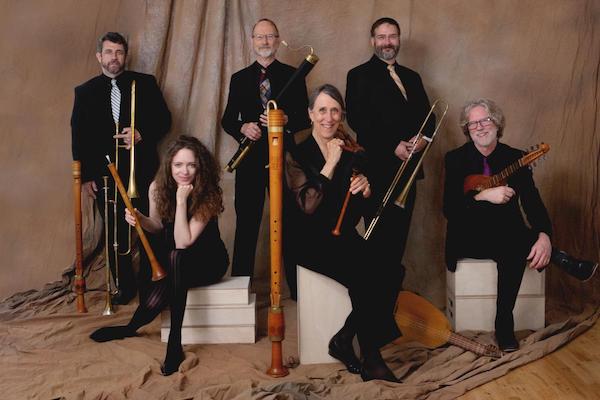Piffaro pays homage to Charles V with royally varied program
Charles V, King of Spain, Lord of the Netherlands, Holy Roman Emperor, was one of the most powerful rulers in 16th-century Europe. He was also known as a humanitarian and patron of the arts.
On Sunday, Music Before 1800 presented Piffaro, one of America’s premiere early music ensembles, in a concert in Manhattan’s Corpus Christi Church. The program was organized around Charles’ life, with many works written specifically for him or with him in mind, by such eminent composers as Josquin Desprez, Alexander Agricola, Pierre de La Rue, Cristóbal Morales and Nicholas Gombert, among others.
One of the particular delights of this repertoire as performed by a Renaissance consort is the variety of sound colors created. This aspect was fully on display in Piffaro’s performance, as a panoply of shawms, recorders, crumhorns, bagpipes and dulcians were employed, as well as sackbuts, straight trumpets and percussion. Singularly impressive was the group’s ability to balance these instruments against the much softer tones of the lute and vihuela.
The well-constructed program included reflective works for solo lute as well as raucous dances performed by the entire ensemble. Fanfares, mass movements, motets and stately dances helped illustrate the variety and splendor of this repertoire and time period.
Charles V was a pivotal figure in the further development of Spain’s American colonies, so it was nice to have a work by Gaspar Fernandez, who spent much of his career in Guatemala and Mexico, included in the program. In this instance, it was his Elegit eum Dominus, written for a memorial service held in Chales’ honor in Mexico City’s cathedral. Also included were Josquin’s ever-popular fanfare Vive le Roy, the well-known La Battalia, multiple settings of the chanson Mille Regretz, as well as more obscure work of Morales, the sole-surviving fragment of a setting of the Officium Defunctoris.
Piffaro performed with suavity and heart, capturing the ethereal qualities of the sacred music and the elegance of the courtly pieces, as well as the bawdiness of numbers such as Ceulx de Picardie, Claudin de Sermisy’s depiction of drunken soldiers. The performers moved seamlessly from soft-toned to blaring instruments, retaining intonation and style in this varied, delightful program.
The concert will be available online March 6 with a live Q&A. https://mb1800.org







